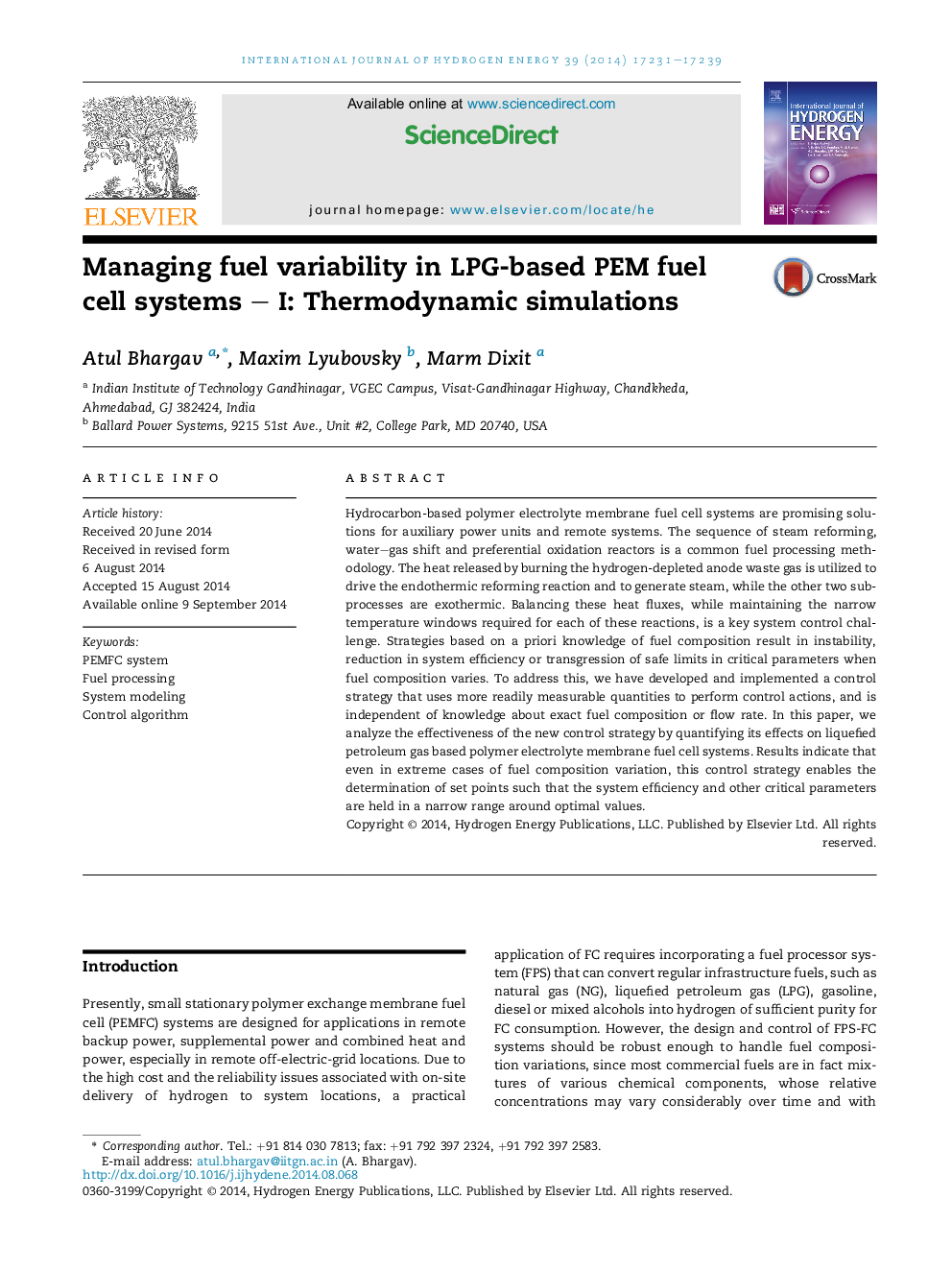| Article ID | Journal | Published Year | Pages | File Type |
|---|---|---|---|---|
| 1272178 | International Journal of Hydrogen Energy | 2014 | 9 Pages |
•New control strategy for a LPG-based PEM fuel cell system has been developed.•This control strategy is independent of fuel composition information.•It is compared with a strategy that assumes fixed-fuel composition.•The new strategy is effective in keeping all system parameters in safe bounds.
Hydrocarbon-based polymer electrolyte membrane fuel cell systems are promising solutions for auxiliary power units and remote systems. The sequence of steam reforming, water–gas shift and preferential oxidation reactors is a common fuel processing methodology. The heat released by burning the hydrogen-depleted anode waste gas is utilized to drive the endothermic reforming reaction and to generate steam, while the other two sub-processes are exothermic. Balancing these heat fluxes, while maintaining the narrow temperature windows required for each of these reactions, is a key system control challenge. Strategies based on a priori knowledge of fuel composition result in instability, reduction in system efficiency or transgression of safe limits in critical parameters when fuel composition varies. To address this, we have developed and implemented a control strategy that uses more readily measurable quantities to perform control actions, and is independent of knowledge about exact fuel composition or flow rate. In this paper, we analyze the effectiveness of the new control strategy by quantifying its effects on liquefied petroleum gas based polymer electrolyte membrane fuel cell systems. Results indicate that even in extreme cases of fuel composition variation, this control strategy enables the determination of set points such that the system efficiency and other critical parameters are held in a narrow range around optimal values.
